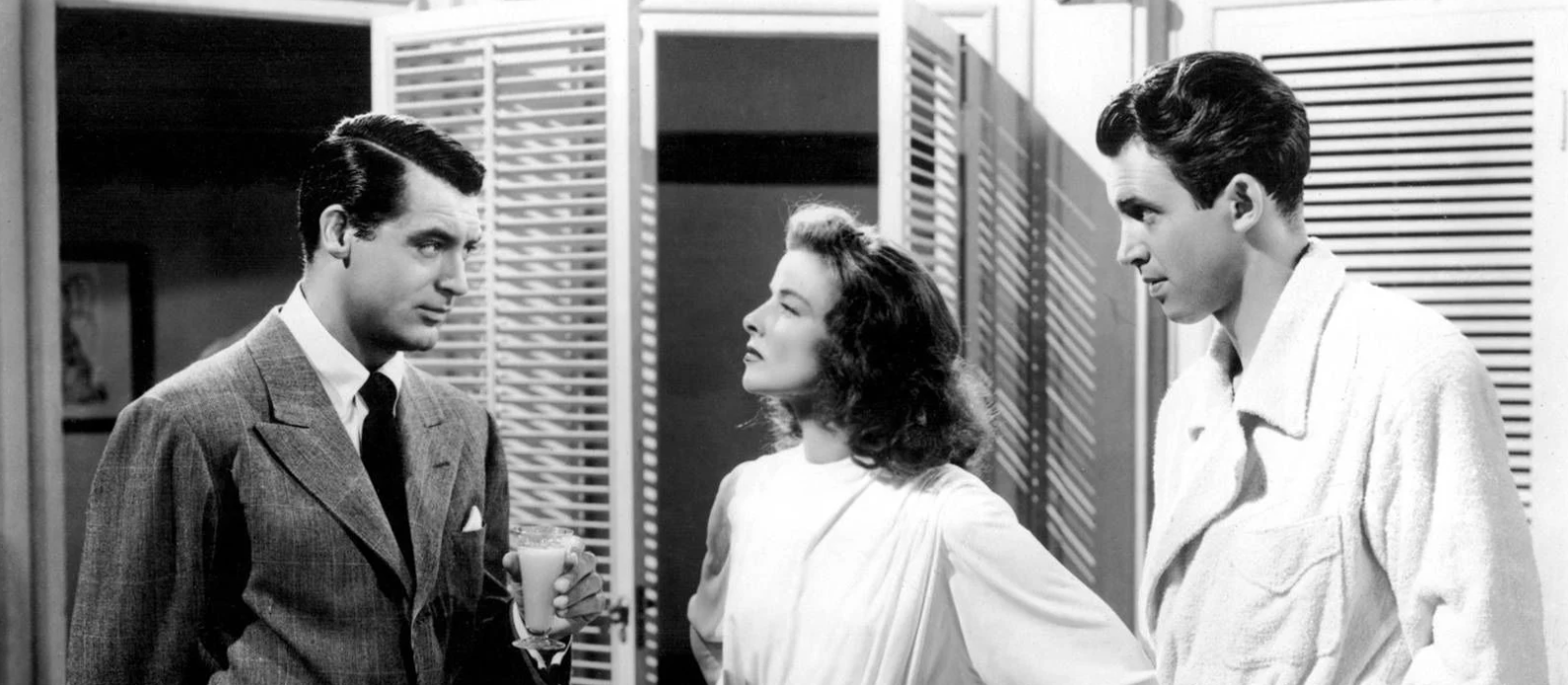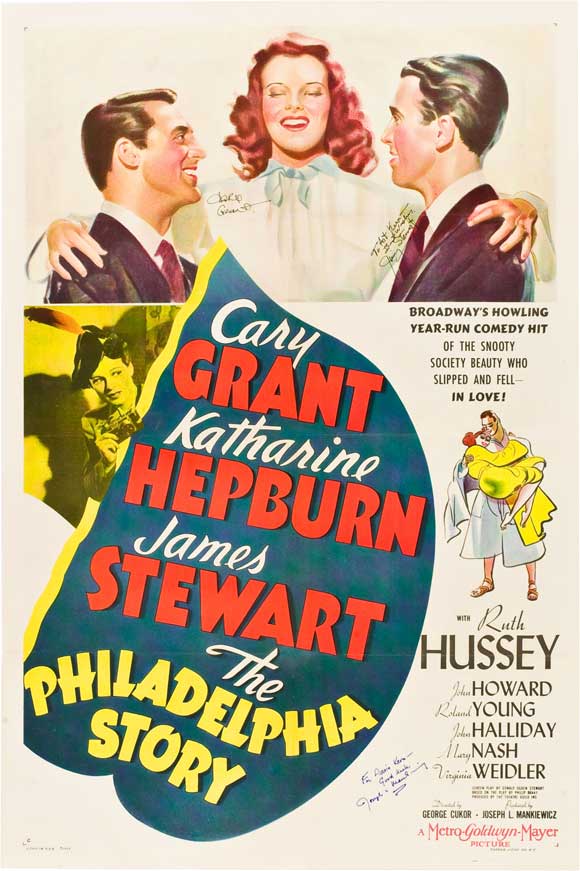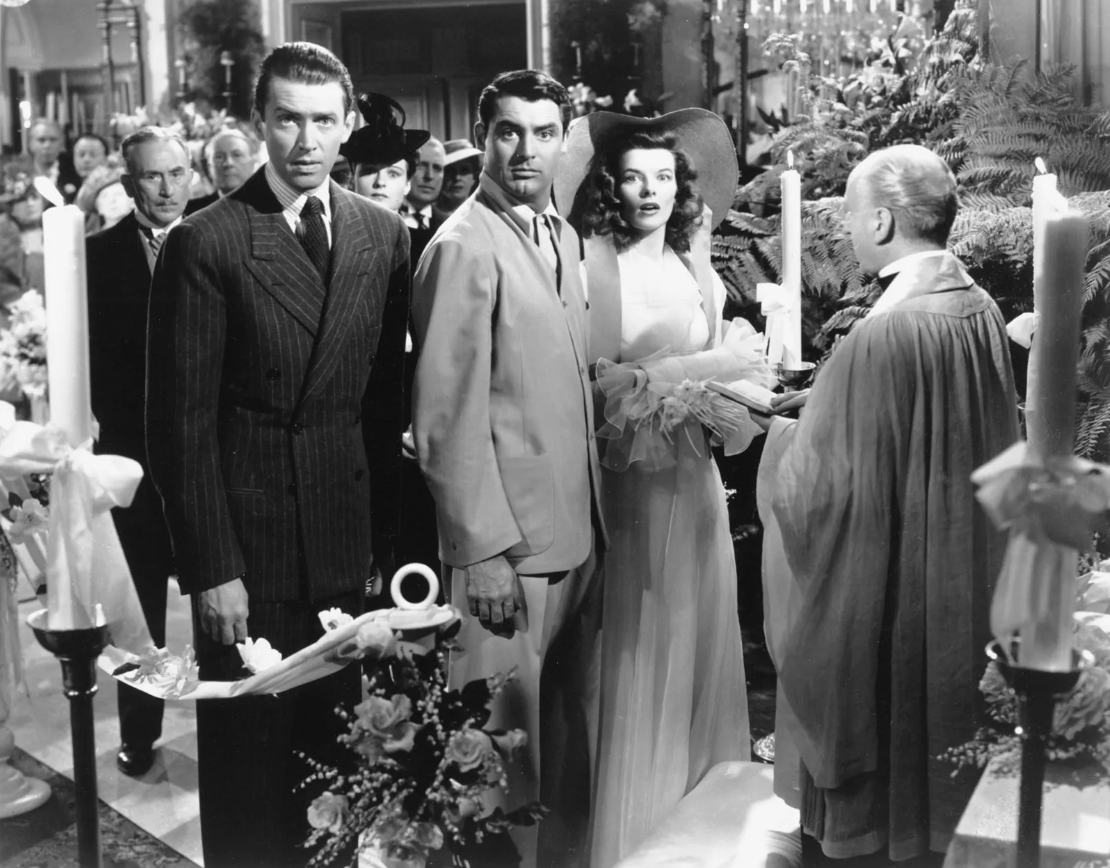

“The time to make up your mind about people is never.”
Two years on from a bitter divorce, radiant socialite Tracy Lord Haven (Katherine Hepburn) is set to be remarried to a young social climber named George Kittredge (John Howard) at her family’s luxurious estate. As one of the oldest and wealthiest families in the city, the juicy details of the Lords’ personal lives are the height of tabloid fodder, and so cynical magazine writer Macaulay “Mike” Connor (James Stewart) and photographer Elizabeth “Liz” Imbrie (Ruth Hussey) are tasked with infiltrating the lavish wedding and getting the scoop. They bluff their way into the Lord mansion by posing as friends of an absent Lord brother who’s sent them in his stead—a pretext that only works, albeit for a few hours, because they’re introduced by the familiar face of Tracy’s smooth-talking ex-husband C. K. Dexter Haven (Cary Grant), who still harbors a grudge and wishes to undermine the proceedings. Tracy sees right through the trick, at which point good old blackmail secures their place at the table and Tracy commits to making her unwelcome guests as uncomfortable as possible. Mix-ups, feigned emotions, and coded arguments ensue, but things get truly complicated when the bride-to-be gets all hot under the collar for the down-to-earth Connor, a clever twist on a familiar template that provides an opportunity for the film to delve into complex themes in a more poignant fashion than one might expect.
With its witty dialogue, class satire, and romantic hijinks, The Philadelphia Story bears many of the hallmarks of a classic screwball romantic comedy. Indeed, the trio of Grant and Hepburn were well familiar with this fast-talking style of entertainment, having teamed up three times before on Bringing Up Baby, Sylvia Scarlett, and Holiday, the latter two of which were helmed by The Philadelphia Story director George Cukor.
After a string of box office failures, Hepburn found herself at a career crossroads, and took the drastic step of buying out her contract with RKO and moving to New York, where she starred in a play written specifically for her by Philip Barry. Sensing that it could be her ticket back to Hollywood stardom, her romantic partner Howard Hughes bought the film rights before the play had even debuted. When it was successful on Broadway, she sold the rights to MGM on several conditions: that she could be the star, and that she could choose her director and co-stars.

All three main performers are in prime form and working in sync with one another (with a special mention due Virginia Weidler as the young Dinah Lord) as Donald Ogden Stewart’s Oscar-winning script provides exuberant banter at every turn, even as it elides some of the hokier situations that generally come with the genre. Stewart, who won an Oscar for his role (Hepburn, Hussey, Cukor, and producer Joseph L. Mankiewicz were all nominated), steals the show with several brilliant sequences, including a bizarre encounter with a librarian (Hilda Plowright) who speaks as if she were taught English from a King James bible, and a hiccupping-drunk conversation with Dex in the middle of the night.
I thought all writers drank to excess and beat their wives. Y’know, at one time, I secretly wanted to be a writer.
But the breathless antics are not merely played for laughs. The screenplay goes deeper, aiming beyond the absurd circumstances and zany twists toward a mature social satire that skewers all sorts of snobbery and touches on a diverse range of themes, among them the objectification of beauty, the artist selling out to make ends meet, the lover watching their beloved pursue another, and moral self-righteousness. As Stewart’s character disrupts the standard “comedy of remarriage” formula—introducing a true love triangle (we never really consider the dopey rebound) and precluding all the shady tricks that Grant had to pull in films like His Girl Friday and The Awful Truth—the film turns into a mesmerizing tour de force in which all of its main contributors are working at the top of their game, producing a beguiling picture with a rare combination of depth and entertainment value.
Sources:
Plath, James. “For a Comedy of Manners, ‘The Philadelphia Story’ Is Awfully Screwball”. Pop Matters. 14 December 2017.